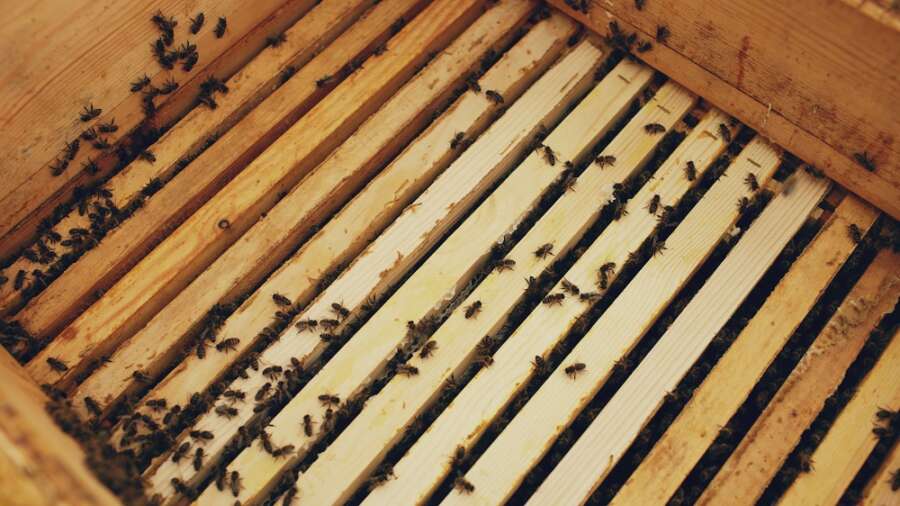
The Scottish Bee Company, a family-owned brand that prides itself on producing uniquely flavourful honey ethically and sustainably, is celebrating the mental health benefits of bees and honey this World Mental Health Month, which takes place every October.
The business, which has 500 hives dotted across the Scottish countryside, equating to around 25 million bees at the height of summer, says that there is widespread awareness that honey can be good for our bodies. The World Health Organisation endorses it as a natural cough remedy, and it contains numerous vitamins and minerals.
However, the positive impact on our mental wellbeing is far less understood.
With stress, anxiety and depression becoming increasingly common, and more people turning to natural solutions for their wellness needs, it could be time to consider one of the UK’s sweetest natural resources. There are several theories and pieces of research worth bearing in mind.
– Bee sound therapy. Several countries, including Slovenia use the sound of bees as an alleviant for anxiety and stress, particularly for people in high-pressure jobs like firefighting. The sound of bees humming around a hive or meadow is also becoming commonplace in meditation and sleep therapy sessions.
– Beekeeping may reduce anxiety. Many people find solace in keeping bees. It is thought that the responsibility of caring for a hive helps with feelings of self-worth, along with the benefits of spending time outside with nature. Beekeeping as therapy is starting to gain a foothold in the UK, including for hospital patients, veterans, emergency workers, and vulnerable people.
– Honey as a stress-reducing food. Recent studies indicate that honey has anxiolytic properties, meaning that it contains compounds (such as an antioxidant flavonoids called chrysin and gallic acid) that are capable of reducing anxiety. Honey is also beneficial for gut health, which researchers believe has a connection to better mental health. It provides prebiotic fibre to help the good bacteria (collectively called the microbiome) in the gut thrive.
Co-founders, Iain and Suzie Millar, are no strangers to the wellness benefits of honey, with scientists recently labelling their Scottish Heather Honey a superfood. It was discovered that it contains 10x the amount of Manganese than any other honey, an essential nutrient that is needed for healthy brain function.
“You only have to spend a few minutes amongst the hives and the heather to be convinced of how relaxing it is – the humming is a little bit like white noise, and being out in nature soothes the mind as well,” explains Suzie. “Then the practice of beekeeping itself is incredibly therapeutic. You forget about everything else that is going on, and focus completely on what the bees need. It requires a slower, more mindful approach than a lot of us are used to.”
“We have been co-existing with bees for centuries, and enjoying the mental health benefits for just as long. Beekeeping was even used in the First World War to help soldiers deal with post-traumatic stress. We would love to see more people exploring the positive impact that spending time around bees can provide – and the studies being done around the links between honey and better brain health are exciting as well.”
The Scottish Bee Company was founded in 2017, when Iain and Suzie Millar were inspired to do something about the plight facing bees. They adopted some bees, hired a team of expert bee farmers, and brought them together in the heather covered hills of Scotland to produce uniquely flavourful honeys that reflect the region’s unspoiled wilderness.
For more information on The Scottish Bee Company, visit scottishbeecompany.co.uk. For more details on their charitable work, visit repollinate.org.uk.


